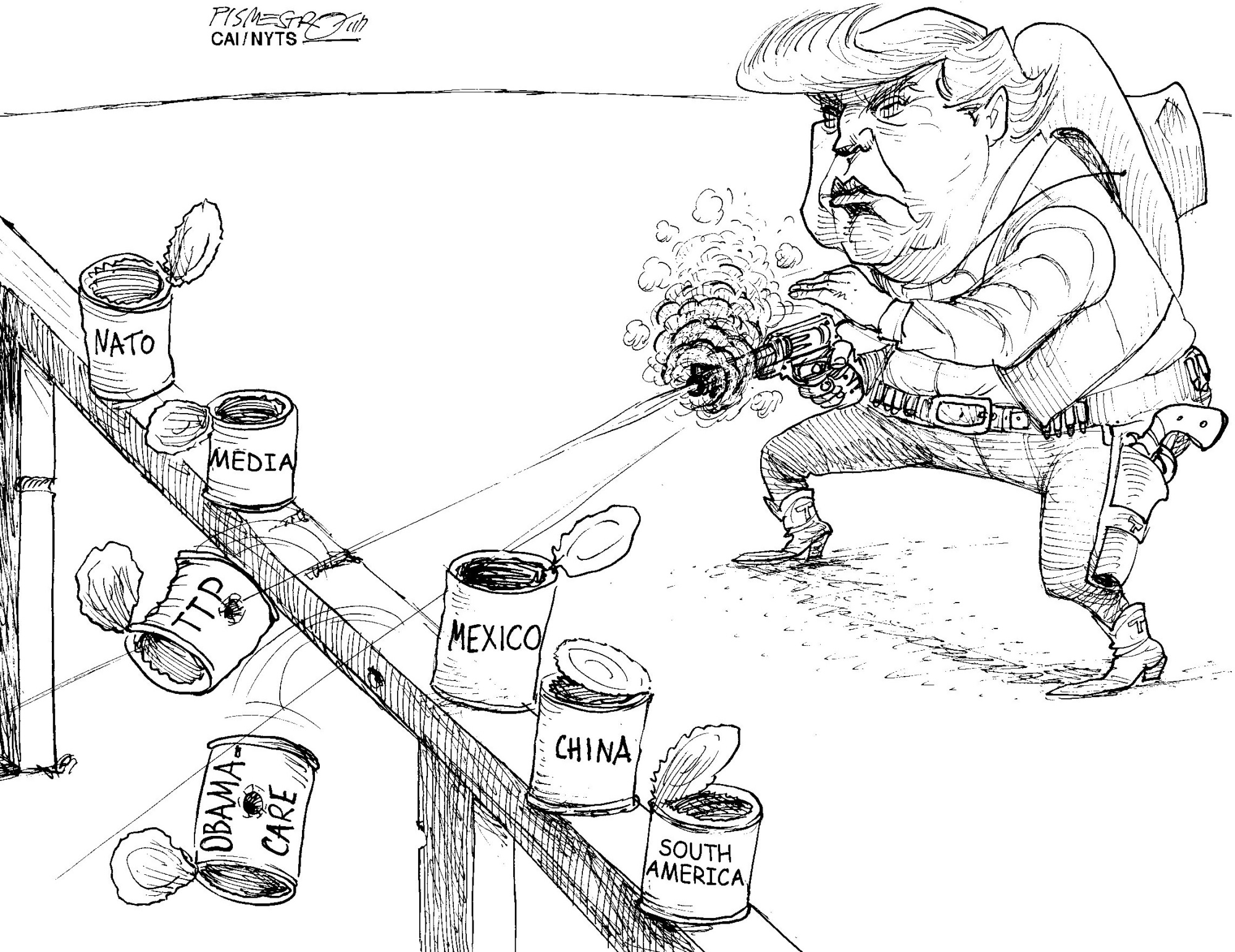Over the last eight years, as China's posturing in Asia became increasingly aggressive, many criticized U.S. President Barack Obama for failing to stand up to the Asian giant. It was on Obama's watch, after all, that China captured the disputed Scarborough Shoal from the Philippines and built seven artificial islands in the South China Sea, on which it then deployed heavy weapons — all without incurring any international costs.
Many expect Obama's tough-talking successor, Donald Trump, to change all of this. He is not off to a good start.
During the campaign, Trump threatened to retaliate against China for "raping" America on trade, to impose massive tariffs on Chinese imports, and to label China a currency manipulator on "day one." Soon after his victory, Trump took a congratulatory phone call from the president of Taiwan, thereby breaking with nearly 40 years of diplomatic orthodoxy. Trump then took the matter a step further, publicly suggesting that he would use the "one-China" policy as a bargaining chip in bilateral negotiations over contentious economic and security issues — from import taxes to North Korea.


















With your current subscription plan you can comment on stories. However, before writing your first comment, please create a display name in the Profile section of your subscriber account page.